India Assam: Will four million people really be deported?
- Published
'The Indian government is tearing my family apart'
Some four million people have effectively lost their citizenship in India's north-eastern state of Assam.
They were left off a list of proven citizens, which was created as part of a government drive to identify illegal migrants from neighbouring Bangladesh.
Here's what led to that controversial move, and what might happen next.
How did the list come about?
Fears over illegal migration from Bangladesh, formerly East Pakistan, have long been alive in Assam.
The state's very first list of citizens - formally known as the National Register of Citizens, or NRC - was published in 1951, just four years after the partition of India, when millions of people had crossed into India from East Bengal, which had become a part of Pakistan.
The list was drawn up in response to nationalist groups in Assam who were afraid of an influx of Muslim immigrants changing the state's Hindu-majority demographics.
But the problem re-emerged in the 1970s. After Bangladesh declared independence and broke away from Pakistan on 26 March 1971, sparking a bitter war, millions again fled to neighbouring India. And many of the refugees settled in Assam.
By 1979, a movement against illegal immigrants led by the All Assam Students Union (AASU) took hold. The agitation turned violent in 1983 when mobs killed more than 2,000 suspected immigrants, most of whom were Muslims.
AASU and some other regional groups eventually signed an agreement in 1985 with the federal government led by Prime Minister Rajiv Gandhi.
It said that anyone who could not prove that they were living in Assam by 24 March 1971 would be expelled from electoral rolls and considered illegal immigrants.
But the accord was never implemented.
So why is it being updated after all these years?
In 2009, a man named Aabhijeet Sharma petitioned the Supreme Court, asking that the NRC be updated. In 2014, the court instructed the federal government to do so by 31 January 2016.
However given the magnitude of the exercise - which involved the verification of documents belonging to more than 32 million people - the first draft of the NRC was only published in December 2017.
The second draft was published on 30 July.
Who is on the list?
The NRC contains the names of people who have been able to prove that they arrived in Assam on or before 24 March 1971.
Everyone in the state had to submit documents to prove their claim to citizenship, including land and tenancy records, voter IDs or passports.
Those who were born after 1971 were asked to submit documents that proved that their parents or grandparents had settled in India before the cut-off date.
Around four million people did not make the list. Their names could be deleted from electoral rolls as they are not considered legitimate citizens.
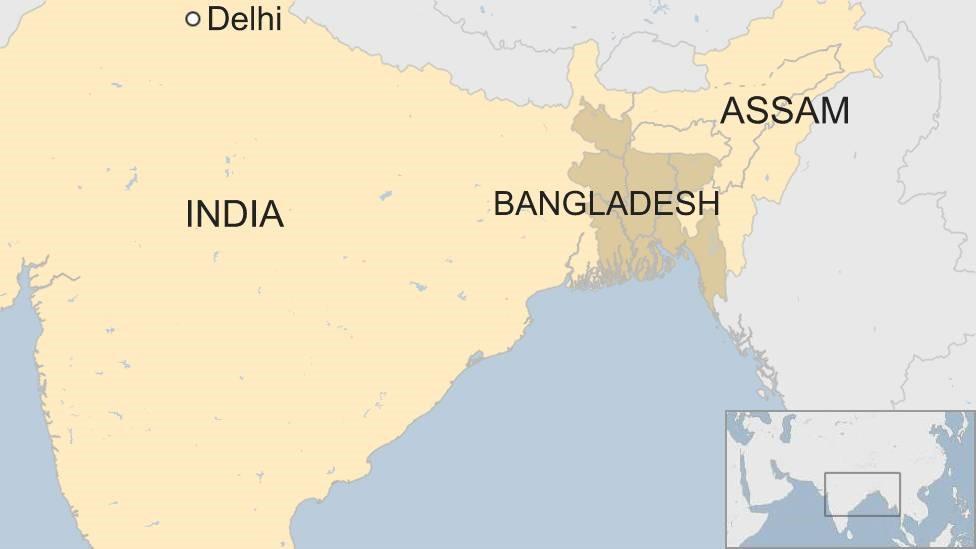
What has the reaction been?
It has been mixed.
Many Hindus across the country have hailed it as a bold move and praised the ruling Hindu nationalist Bharatiya Janata Party (BJP) for implementing it when other state governments did not have the "guts" to do so.
Some feel that it is a political masterstroke ahead of upcoming national elections in 2019.
But opposition parties have roundly denounced the move and criticised Prime Minister Narendra Modi for separating families and effectively making millions of people stateless overnight.
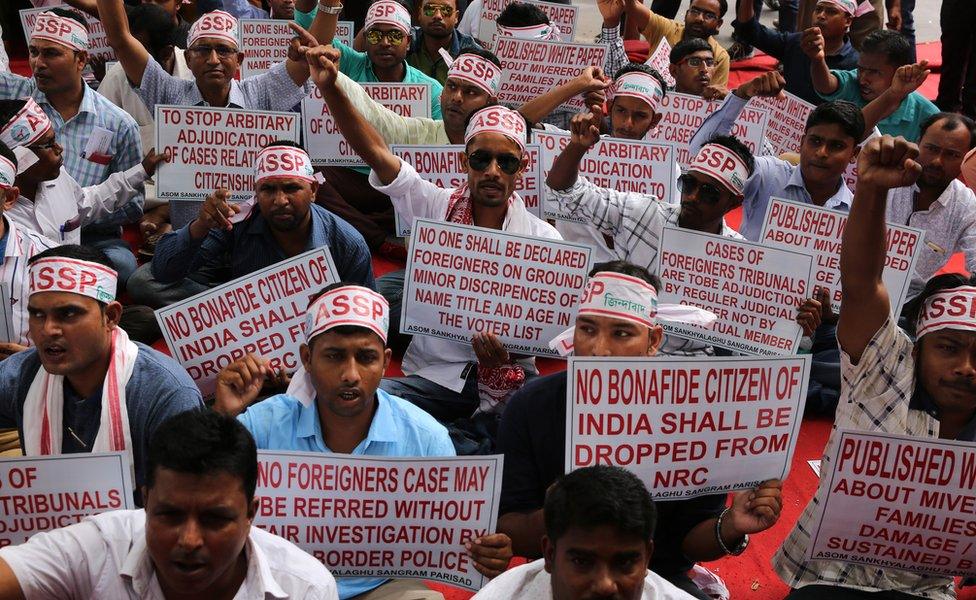
Despite criticism, officials maintain the process has been "fair and transparent"
Rahul Gandhi, leader of the main opposition Congress party, said the list had created "massive insecurity" among people.
And Mamata Banerjee, the chief minister of neighbouring West Bengal state, has been its most vocal critic. She predicted a "bloodbath" and said the exercise was making a mockery of democracy.
"It seems like the BJP is using the issue to polarise voters and reinforce its anti-Muslim rhetoric - and opposition parties have reacted to the bait," Subir Bhaumik, author of Troubled Periphery, a study of India's troubled north-east, told the BBC.
But Indian officials have insisted that the process is "not targeting Muslims". Prateek Hajela, the NRC head, told BBC Urdu that those excluded were "people from different religions and groups".
Home Minister Rajnath Singh told the upper house of parliament that the process was "fair and transparent" and that "no Indian citizen would be left out".
Is this a final list?
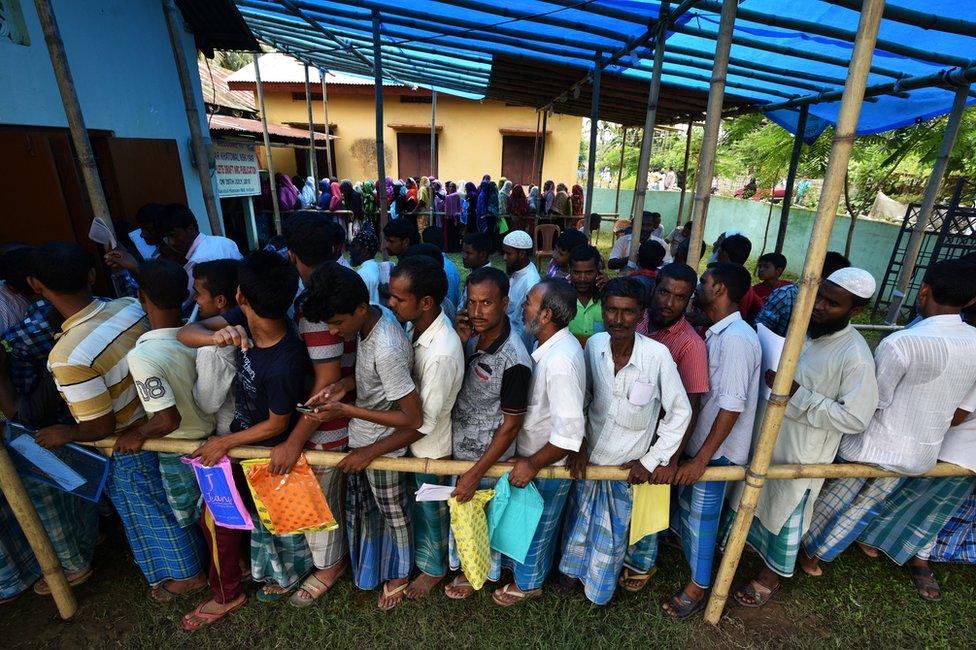
Assam is the only state with a National Register of Citizens
No. The government has been very categorical about this. Home Minister Singh has made it clear that people can appeal against their non-inclusion. They can also submit more documents to claim citizenship in the coming months.
So there is a chance that an updated list will carry their names.
And activists say is a necessary move.
The NRC has already produced some surprising results - former servicemen, current political leaders and even some government employees, including one tasked with compiling the NRC - have not found their names on the list.
News reports have pointed out how minor spelling errors have led to documents being rejected, external. Others mention how some families have seen one sibling making it on to the list while another did not, external.
Assam also has a history of flooding, which means that many families have often lost official documents along with other belongings.
Will there be mass deportations?
It is unclear - but also unlikely at the moment, say experts.
Mr Modi has consistently said that illegal Muslim immigrants will be deported. But the BBC's India columnist, Soutik Biswas, says Bangladesh will "definitely not accede to such a request". Instead, he adds, there is a chance that India will end up "creating the newest cohort of stateless people" - similar to the Rohingyas of Myanmar.
There are currently half a dozen detention camps in Assam, which house some 1,000 people. In July, the state government said it had permission to build a new detention centre, external for those unable to prove their citizenship, the Indian Express reports.
India has no official treaty with Bangladesh in relation to the NRC or cross-border illegal immigration.
Regional security expert Seshadri Chari says that Bangladesh has always maintained that the NRC is an "internal matter and not a bilateral issue between the two countries".
He adds: "This underscores Bangladesh's resolve to not accept even one single illegal migrant that India may want to deport."
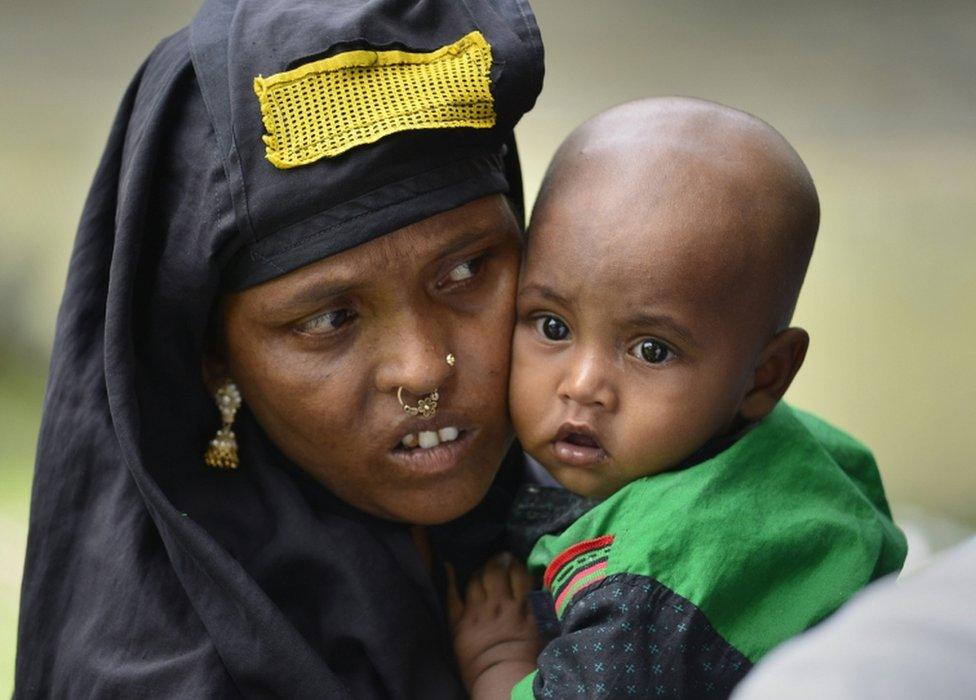
The ruling government has been accused of destroying families
Are there fears of violence?
There has been concern over the safety of those whose names are not on the list.
While the government has not released any data on their religious identities, the majority of them are believed to be Bengali-speaking Muslims.
But there have been no protests or incidents of violence so far.
"Who is going to protest? Those in Assam who have pushed for it are feeling vindicated right now," Mr Bhaumik says. "And those whose names are not on the list are preoccupied with trying to get on it."
A final list which is to be compiled after addressing all appeals and challenges could trigger violence, says the BBC's Nitin Srivastava, who has been reporting on the NRC in Assam.
"That is when they will be concerned about losing their land, voting rights and freedom."
Reporting by Krutika Pathi
- Published3 August 2018
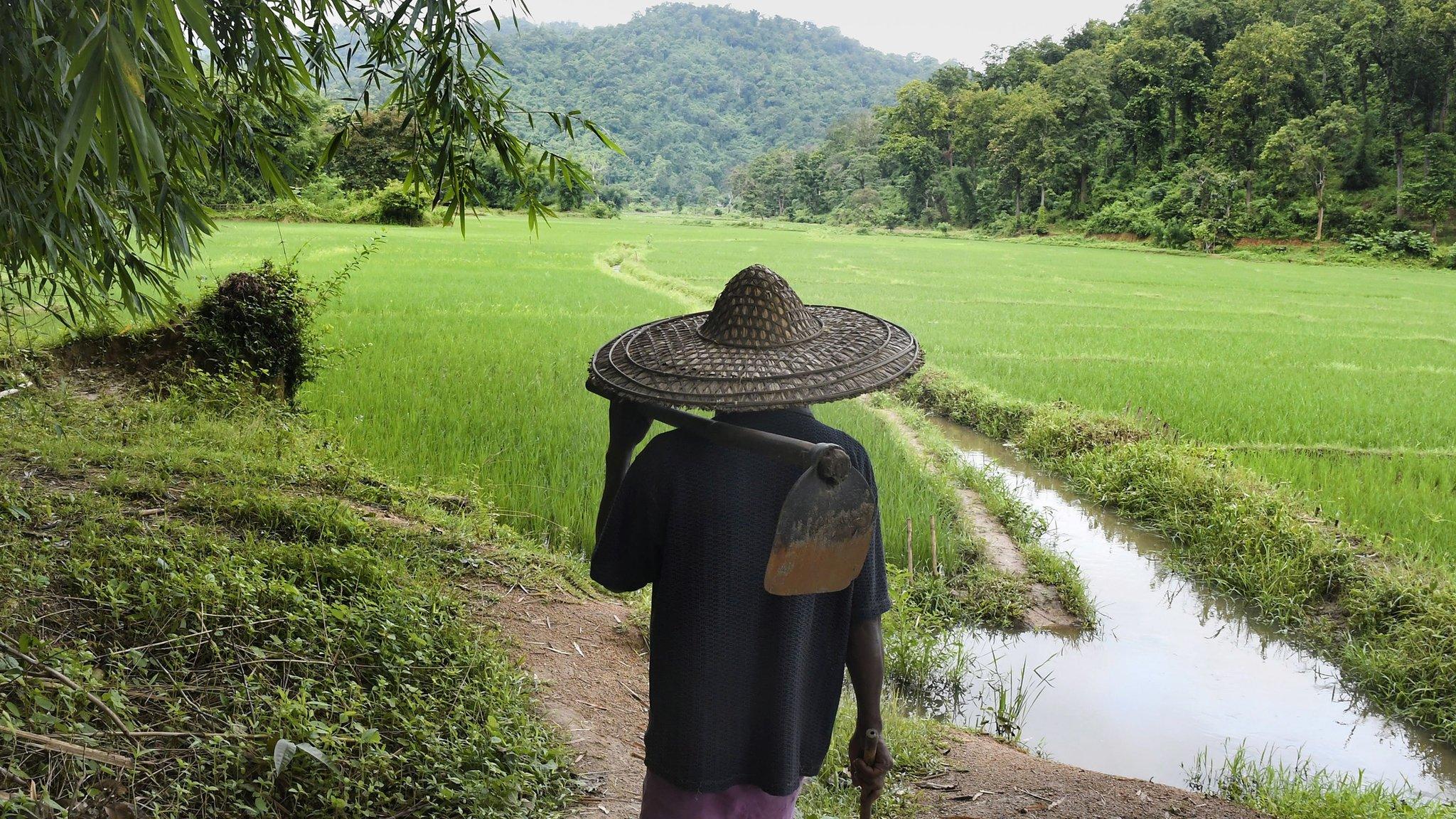
- Published30 July 2018
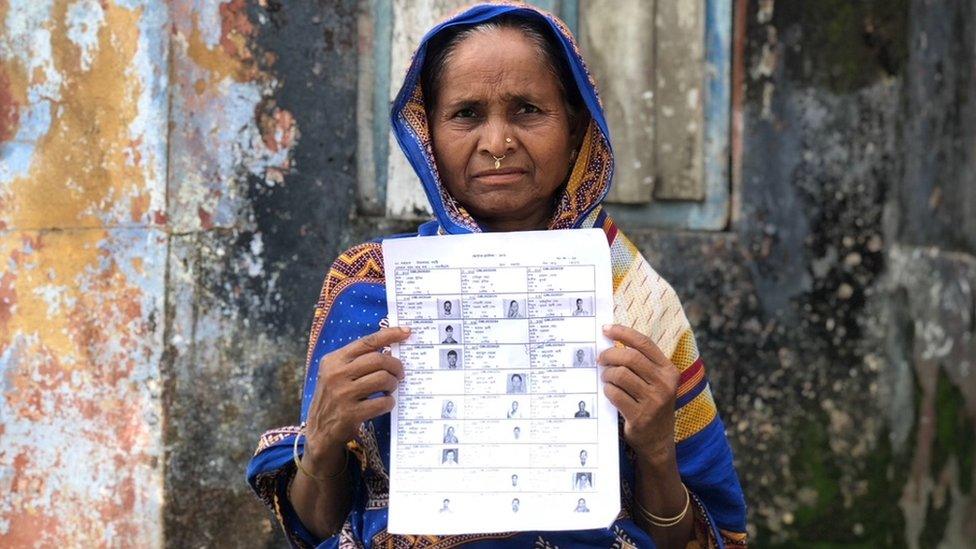
- Published30 July 2018